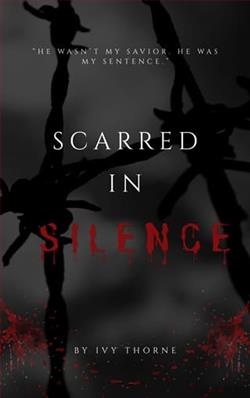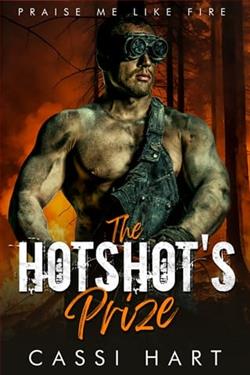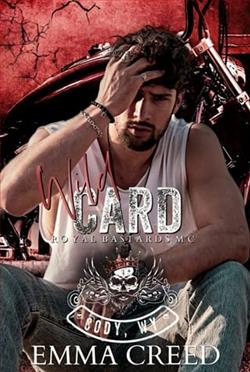Page 130 of On Ice
So I’ll behave.
Chapter Thirty-One
Evan
I’m still catching my breath from the regular season when the playoffs hit us like a freight train. We barely clawed our way into the final spot, nobody thought we’d make it. And once we did, there was no time to celebrate. No break. No reset. Just war, starting with the Carolina Storm. Everyone counted us out. First-round fodder. But we didn’t fold. We fought through seven brutal games, bled through overtime, and somehow came out on top. I still don’t know how we did it.
All I know is, we’re still standing.
Atlanta was next. Flashier team, looser systems. We found our rhythm. Six games, one bad injury, and a goal Rodriguez called “the best fluke of his life.”
By the time we hit the Conference Finals, we were exhausted. Chicago Blaze made us bleed for every inch of ice. Seven games again. Game 7 went to double overtime. Noah stood on his head. Deck dropped two guys. I couldn’t lift my left arm after a shoulder hit in Game 4, and I still haven’t told Luca how bad it was.
The win against Chicago still hasn’t sunk in. We made it to the Cup Final, and I should be riding the high. This is everything I’ve ever wanted. But my body’s wrecked, my head’s loud, and the pressure’s closing in all over again. Six games down. Tomorrow is Game 7, the last chance, the last battle to win the war. Luca decided I needed air, space, and water.
The ocean stretches endlessly around us, a perfect blue canvas meeting an equally flawless sky at the horizon. Somewhere beneath us, Luca’s yacht cuts through the water with barely a sound, the engine’s hum just a whisper against the splash of waves. The salt air fills my lungs with each breath, clean and sharp, so different from the antiseptic smell of Mom’s room at the care facility. I’ve spent as much time as possible there lately, but each time I feel more hopeless.
I stand at the railing, watching sunlight fracture across the water’s surface into countless diamond shards. Tomorrow is Game 7. The biggest game of my career. The culmination of everything we’ve fought for this season. And yet, somehow, hockey feels a million miles away.
Luca approaches from behind, the teak deck creaking slightly beneath his weight. He places a tumbler of something amber next to my hand on the polished railing. I take it without turning.
“The chef will have lunch ready in twenty minutes,” he says.
I nod, sipping the whisky. It burns pleasantly going down. “Thanks,” I say, meaning for more than just the scotch. Luca has been a rock for me. I’d never have guessed he could be so compassionate, but he’s been there for me with Mom.
Luca leans against the railing beside me, his normally impeccable appearance slightly softened by the day on the water. His hair moves in the breeze, his linen shirt open at the collar. He looks younger out here, away from the pressures of his empire, the constant vigilance his world requires.
“Have you spoken with Dr. Rhodes today?” he asks.
My stomach tightens. “This morning. No change.”
The words hang between us, inadequate and heavy. No change. Mom’s been “no change” for three days now. The pneumonia has weakened her heart. Her Alzheimer’s makes recovery more complicated. Dr. Rhodes has tried everything, aggressive antibiotics, experimental treatments, around-the-clock care. But sometimes, all the expertise in the world hits a wall.
Luca’s jaw tightens almost imperceptibly. He’s frustrated. Used to problems that can be solved with money, with power, with the right connections. But this...
“I’m sorry,” he says finally.
“It’s not your fault.”
“I should have brought Dr. Rhodes in sooner.” There’s real regret in his voice. “When she first got sick, not after the pneumonia had already—”
“Luca,” I interrupt, turning to face him fully. “You’ve done everything. More than I could have on my own.”
He looks away, out toward the horizon. “I just hate that I couldn’t fix this for you, baby.”
The admission doesn’t surprise me. It would probably shock others though. Luca Barone isn’t a man accustomed to admitting limitations. He built his world on the premise that everything has a price, that anything can be acquired or arranged with the right resources. Mom’s illness has challenged that worldview.
“It’s enough for me,” I tell him, meaning it. “You’ve given her better care than I could have ever provided on my own.”
He shrugs, looking uncharacteristically emotional.
Something warm unfurls in my chest despite the ache that’s been my constant companion these past weeks. I reach for his hand, our fingers intertwining on the railing. “Luca,” I say softly. “It’s okay.”
A hint of a smile touches his lips. “I’m being a baby.”
“I love that you care.” I lean my head on his shoulder. “There was a time I didn’t think you had a heart.”
“Unfortunately, I do,” he says gruffly.















